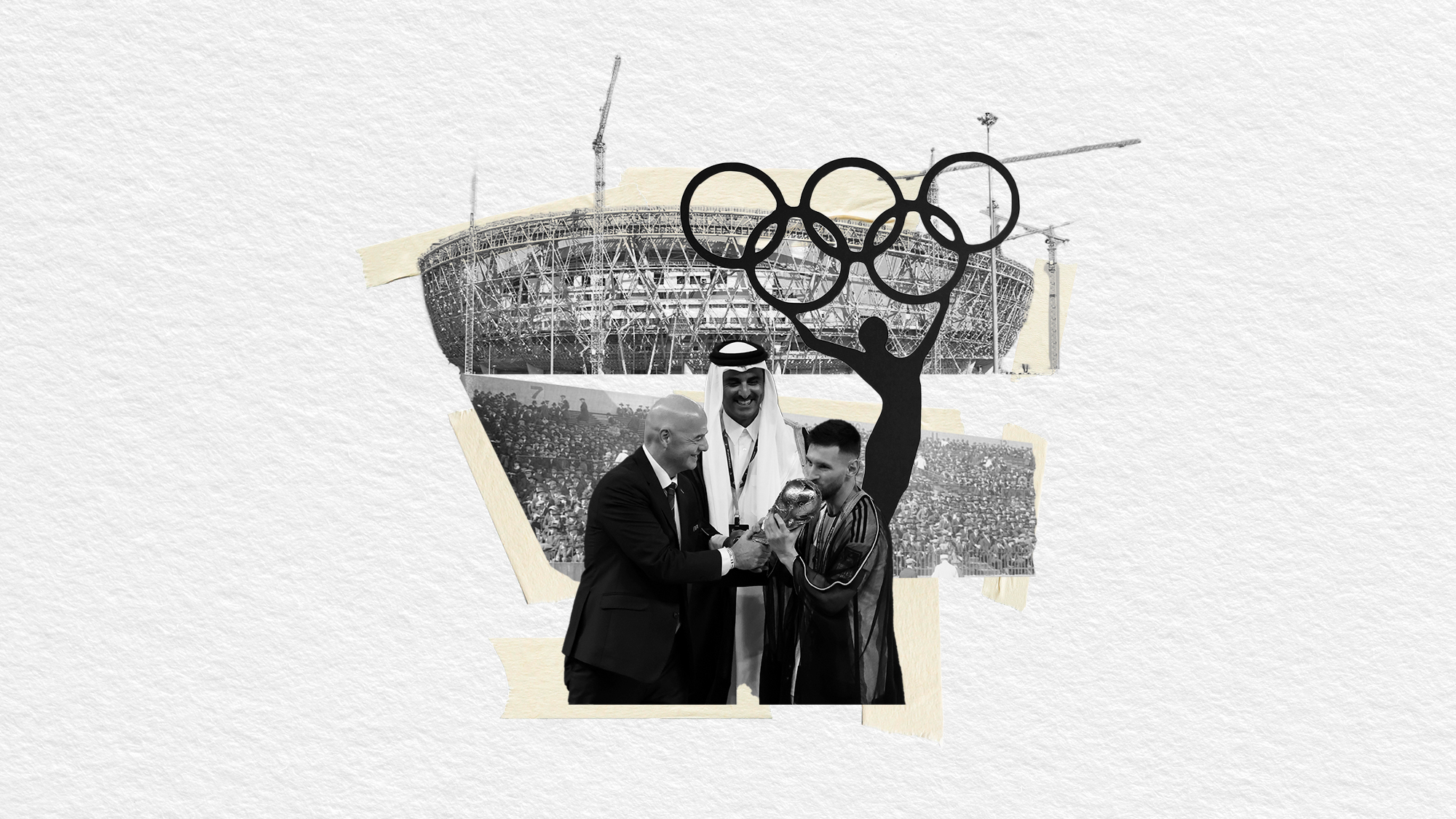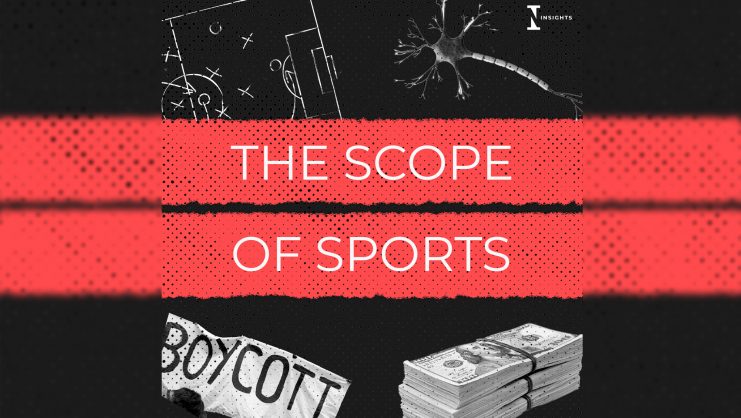Paris is hosting the Olympic Games this year. Saudi Arabia has been chosen to host the 2034 World Cup. They are two of the biggest mega sporting events with the largest global audience, however, both bids accomplished this milestone because they were the only candidates. Given the million-dollar costs associated with these types of major sporting competitions, is it still attractive to stage these types of events, and how can the host countries and cities measure returns?
Beyond the short-term impact, both in terms of economic stimulus, infrastructure development, and tourism promotion, the organization of recent international mega sporting events, such as the 2022 World Cup in Qatar, has highlighted the role of sport in generating reputation and influence for nations. This concept, which we call “soft power” (as opposed to “hard power”, i.e., military and economic power), plays such an important role in building a nation’s (or city’s) brand, and sports play a fundamental role in positively impacting the soft power of nations and cities, as it influences the perceptions of their “cultural heritage”. Soft power allows a nation to influence the preferences and behaviors of various actors in the international arena (states, corporations, communities, audiences, etc.) through attraction or persuasion rather than coercion.
This is why sports diplomacy is nowadays considered a new form of public diplomacy.
This new understanding of sport is the result of a three-stage process, according to Simon Chadwick of SKEMA Business School. First, in the 19th century in the United Kingdom, sport, and in particular soccer, was deemed to be a public service under the utilitarian vision stemming from the Industrial Revolution. It became a popular form of escapism that was understood as a public asset that should be free of charge. In the second half of the 20th century, the neoclassical vision prevailed in the United States led by high-profile brands such as the NBA, and sport began to be seen as a private asset, whose objective was to generate economic profits without relying on public funding or subsidies. This neoclassical approach to sport promoted the development of sponsorship as a tool for financing sports organizations.
In the 21st century, sport has taken on a geopolitical economic function, being used by nations as a public diplomacy tool. A clear example of this is Arab countries’ investment in sport to diversify away their dependence on fossil fuels, and China’s investment in Africa, where it built three stadiums for the 2023 Africa Cup of Nations in Ivory Coast, either free of charge or through soft loans, to gain access to and control the continent’s resources.
Is it still worth organizing these events?
These recent examples demonstrate the importance certain nations place on sports diplomacy in building soft power. However, is it still worth organizing these events for the hosts? How much of a positive impact does sports diplomacy have on a nation’s or city’s long-term soft power and what are the conditions attached?
One method to measure this power, used by Brand Finance, is based on 110,000 surveys conducted in 121 countries with members of the general public and features a wide range of metrics that provide a comprehensive assessment of the visibility, reputation, and impact of nations around the world. Some of these metrics include the degree of recognition of the country in question, its capacity of influence on a global scale, its reputation and perceptions in different areas, including the business environment, its cultural heritage, and its people and values.
Being a “leader in sport” has more impact on a country’s “familiarity” score than on its reputation or capacity to influence.
A multivariate analysis can pinpoint the variables that had the greatest impact on soft power. Perceptions such as “business environment,” i.e. if a nation is “easy to do business in and with” and has a “strong and stable economy,” were the variables that had the greatest impact on a nation’s soft power. This was followed closely by perceptions of a nation’s “culture and heritage”, and among culture and heritage “influential in arts and entertainment” and “leaders in sport” were the variables that had the greatest impact on building soft power. This confirms the importance of sports diplomacy in leveraging soft power in the era of sports geopolitics.
Generally speaking, being a “leader in sport” has more impact on a country’s “familiarity” score than on its reputation or capacity to influence, especially in countries that have a poor level of familiarity in general. This is explained by the exposure of mega sporting events to massive audiences around the world, turning sporting competitions into platforms through which nations can highlight values and attributes that have a greater impact on their reputation and influence. These fields include having a “strong and stable economy,” being “politically stable and well-governed,” having “internationally admired leaders,” and “sustainable cities and transport.”
The case of Qatar, which hosted the 2022 FIFA World Cup, is a clear example of this. The Gulf state saw improvements in several areas, especially in “familiarity”, where it climbed five positions from 53rd to 48th. Although Qatar also improved in terms of “reputation” and “influence”, two factors moderated the impact of major sporting events on these dimensions.
The first factor relates to a country’s long-term commitment to sports diplomacy. The financial commitment is clear in the case of Qatar, which has invested in several European sports teams, including PSG and SC Braga. However, this commitment does not automatically translate into increased reputation and influence. In fact, the organization of the World Cup revealed social issues in the country, such as the conditions suffered by migrants working on infrastructure projects. Reputation and influence gains are unlikely to last if this platform is not used strategically and the necessary reforms aligned with public diplomacy objectives are not undertaken.
The second factor has to do with the pre-existing perceptions of a country. Countries with more unfavorable perceptions on key variables of reputation and influence, such as their economic and political stability, do not achieve particularly notable impacts through sports diplomacy. For example, although South Africa achieved short-term benefits from hosting the 2010 FIFA World Cup, negative perceptions of the country centering on corruption and a lack of political stability in the years following the tournament mitigated its impact.
Although sports diplomacy is important, its short- and long-term effects depend on pre-existing perceptions and a commitment to initiate reforms in areas that are core elements of soft power. Hosting a mega sporting event alone does not automatically ensure that a nation’s reputation and influence will be positively impacted, it requires commitment and sustained action. A mega-event is a platform to showcase the reality of a country – or city – and capitalize on previous perceptions. However, if the foundations of these positive opinions are not solid, the event will simply create a short-term mirage instead of building lasting perceptions.
A version of this article ran in Spanish in El Economista.
© IE Insights.








